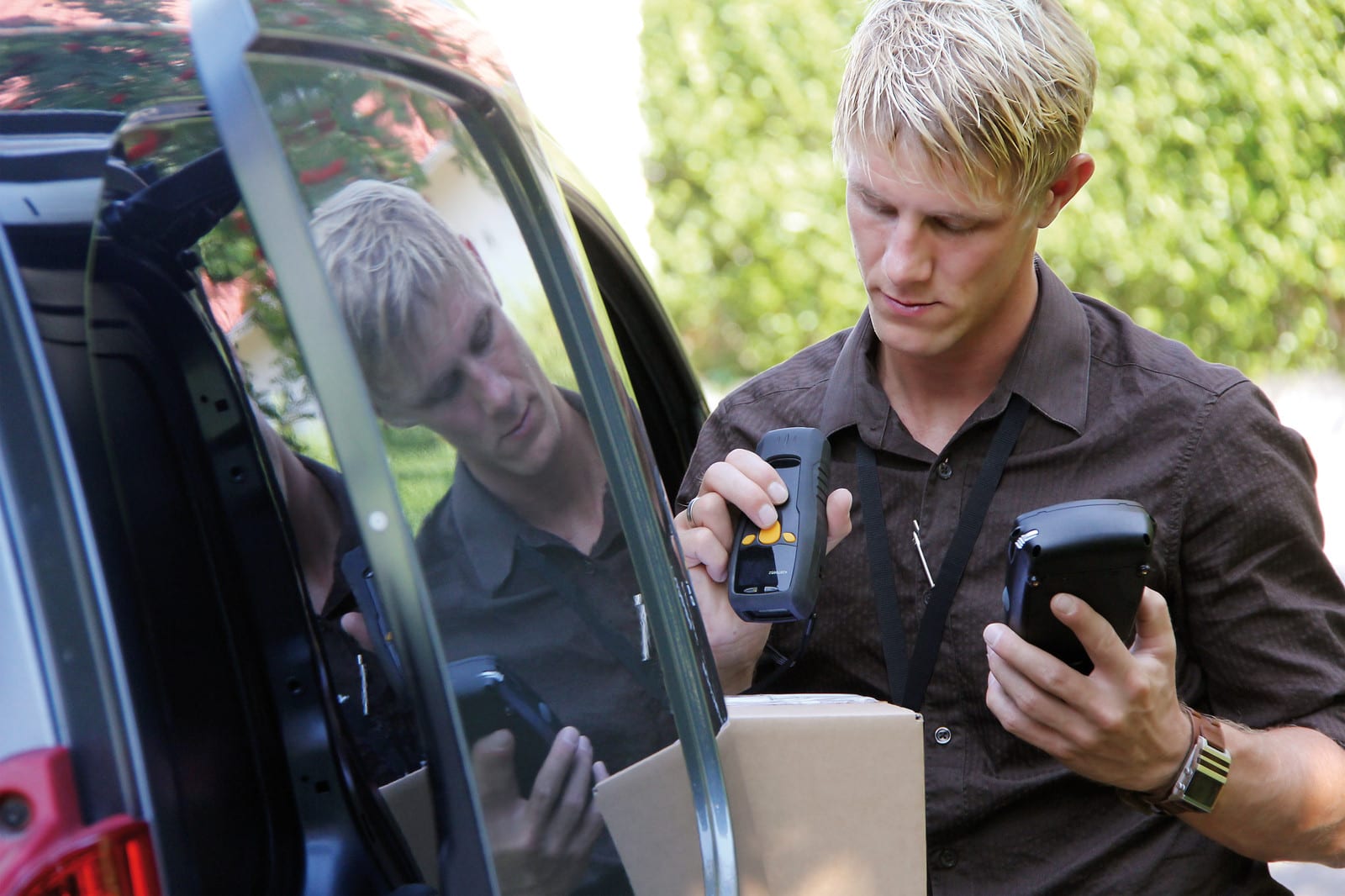 When Bill Earle started driving UPS trucks 20 years ago, he delivered about 90 packages on a typical workday. Today Earle says that he makes roughly 120 deliveries each day, not because he works more hours or has a faster truck, but because his employer has invested in all kinds of technologies to track and improve his operations.
When Bill Earle started driving UPS trucks 20 years ago, he delivered about 90 packages on a typical workday. Today Earle says that he makes roughly 120 deliveries each day, not because he works more hours or has a faster truck, but because his employer has invested in all kinds of technologies to track and improve his operations.
“The data are about as important as the package for us,” Jack Levis, director of process management at UPS, tells NPR. Earle’s truck records everything from when he buckles his seatbelt to when he opens or closes the door behind him. This proliferation of sensors is helping field service workers and their managers identify ways to do their jobs better and faster.
Data-driven decisions
At UPS, computers determine the best way to load trucks each morning and the most efficient routes for drivers. During deliveries, sensors continuously gather data about every move the driver makes. At the end of the day, the data is sent to computers that crunch the information into actionable insights. For example, when UPS learned that opening doors was slowing drivers down, it gave workers a push-button key fob that attaches to their belt loops.
These small tweaks add up. “Just one minute per driver per day over the course of a year adds up to $14.5 million,” Levis says.
And these data-driven decisions apply beyond the world of package delivery. When Dean Logan managed a roofing company in New Jersey, he needed a better way to track the hours and locations of his 40 employees, he tells NBC. He created an app so that they could check in to worksites using their phones, eliminating the need for cumbersome time cards and ensuring that workers are on site when they need to be.
A long way to go
Just because companies technically can track worker metrics doesn’t mean they’re all jumping on the Big Data bandwagon. Nearly 30 percent of field service managers say that their organization is ineffective or extremely ineffective at managing the data that they collect to make decisions, according to 2014 research from Trimble Navigation. More than 80 percent fail to capture customer feedback, such as customer feedback from Facebook and Twitter, to use in decision-making.
“A manager who knows which drivers have poor driving habits is better equipped to coach those drivers; up-to-date information on the health of vehicles leads to better maintenance, which in turn leads to safer vehicles, improved fuel consumption and less wear and tear,” Joyce Tam, product marketing strategist at Trimble, writes in Business 2 Community.
Formula One offers a glimpse of how data impacts maintenance. At the Brazilian Grand Prix last year, the Infiniti Red Bull Racing team gathered sensor data from a driver’s car that had crashed. It sent instructions to trackside engineers ahead of the first pit stop, giving them more time to make alterations that prevented further damage to the vehicle.
There’s a fine line between Big Data and Big Brother. At UPS, the drivers’ contracts state that the company cannot collect data without telling drivers or discipline them solely based on data. Levis says that drivers who are tracked benefit along with the company, adding that they’re the highest paid in the industry because of their productivity.
As companies use tech to track and manage employees, the nature of workers’ roles changes from reactive to proactive. How is your company measuring and altering how workers get the job done?

Share this: